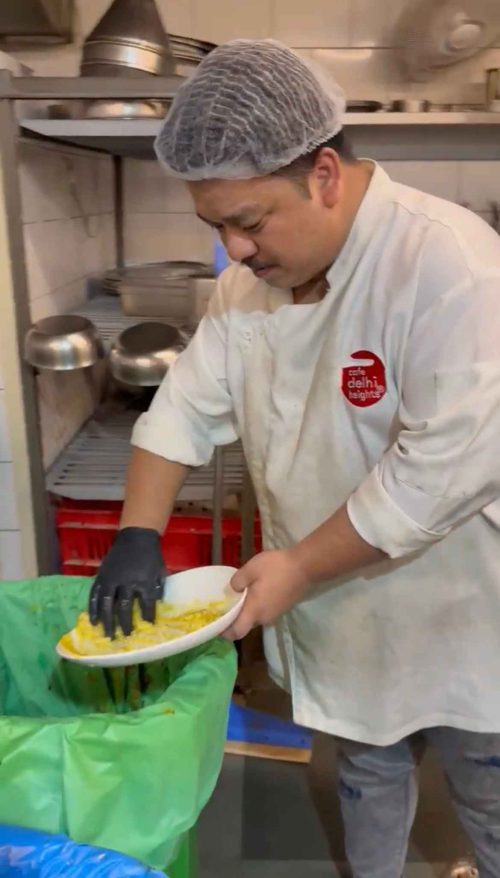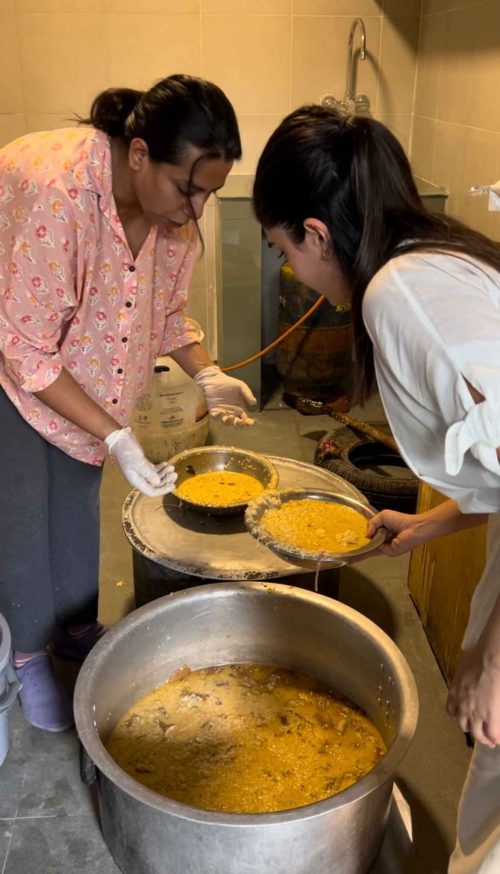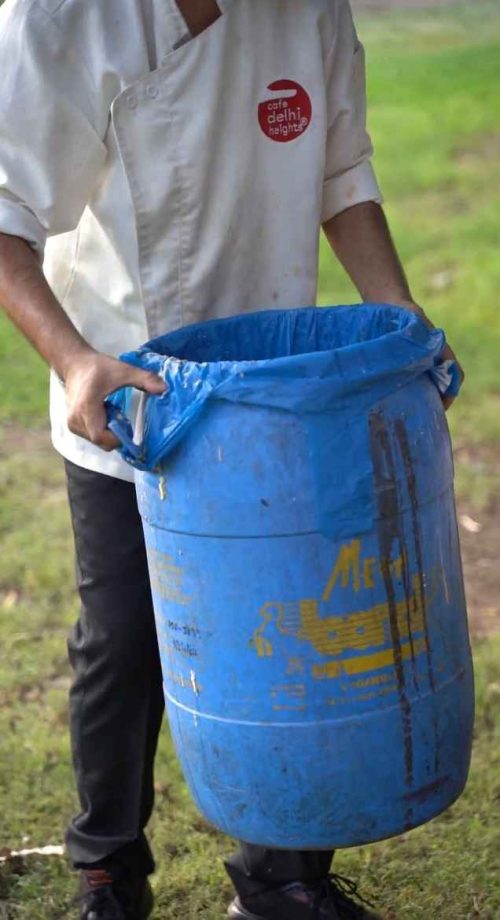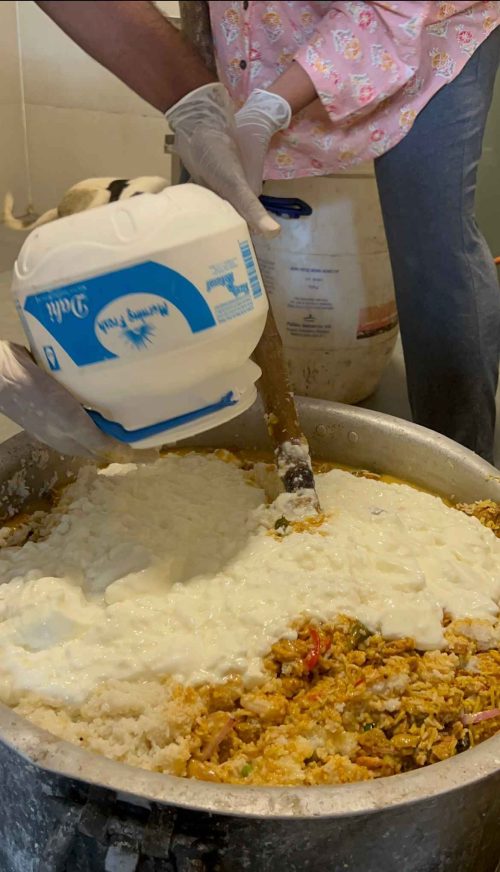Take a stroll around Delhi University at 9 am, and if you’re lucky, you might spot dogs enjoying a hearty meal. Come back the next day, and the scene repeats itself. Visit again at 4 pm, and there they are — loitering around, well-fed and happy.
Who’s behind this initiative?
The Better India recently learned that Neighbourhood Woofs, in collaboration with Delhi Café Heights (DCH), has been feeding stray dogs in Delhi since November 2024.
At first glance, the Red Fort outlet of DCH looks like any other bustling restaurant in the capital — laughter, clinking cutlery, and plates brimming with food. But behind the scenes lies a heartwarming story: food waste transformed into a lifeline for hundreds of stray dogs across the city.

Since November 2024, the outlet, in collaboration with Neighbourhood Woofs, has repurposed over 5,500 kg of leftover food into nutritious meals for strays. This effort is led by Ayesha Christina Benn, founder of Neighbourhood Woofs, an organisation dedicated to dog welfare, and Heart, co-founded by Shirin Batra, daughter of DCH’s founder.
The spark of an idea
For Shirin, who grew up feeding strays and has always been surrounded by pets, joining her family’s F&B business proved to be a turning point.
“I saw so many plates of leftover food just going to waste. It bothered me deeply, especially since food and nutrition have always been a big part of my NGO work. I wanted to find a way to repurpose this food instead of letting it end up in the bin,” she recalls.
That’s when she met Ayesha, whose team was already running feeding and sterilisation drives for stray dogs. A shared love for animals and a practical approach to waste management gave birth to the idea of converting restaurant leftovers into safe, nutritious dog meals.
How it works
The process begins every evening at DCH, where staff carefully segregate leftovers like rice, curries, vegetables, breads, and salads — ensuring nothing spoiled, sugary, salty, or unsafe makes it through.

Ayesha’s team collects the food in large containers and transports it to their dedicated dog kitchen in Timarpur, near Delhi University. Here, the food is stored overnight and processed the next morning.
“We dilute the food with rice and water, and add eggs and curd to make it soupy and nourishing. Feeding sessions happen twice a day — at 9 am and 4:30 pm. These meals not only keep the dogs healthy but also help us safely catch them for sterilisation and vaccinations,” explains Ayesha.
Currently, the initiative feeds over 100 dogs — some housed at Neighbourhood Woofs centres and many more strays across Delhi’s streets.
More than just feeding
For Shirin and Ayesha, the programme is about more than just keeping dogs fed — it’s also a tool for public safety and animal welfare.
“When a dog is well-fed, it’s less aggressive, reducing instances of biting,” Ayesha shares. “Food also helps us build trust with street dogs, making sterilisation and immunisation drives smoother.”

Shirin adds, “This isn’t charity — it’s about creating a system where food waste becomes a solution, not a problem.”
Currently, Ayesha operates in Mukherjee Nagar, Delhi University area, Timarpur, Police Lines, and Model Town.
Looking ahead
With the Red Fort outlet already proving successful, the duo plans to strengthen logistics — particularly food segregation and transportation — before expanding to more outlets.

Their long-term vision is ambitious: to inspire other restaurants across Delhi and India to replicate the model, even repurposing cancelled online food orders for animal welfare.
“The acceptability is already there. Now it’s about building a process that can be scaled. If more eateries join in, imagine the impact — less food waste, more fed strays, and a cleaner city,” says Shirin.
A win-win for all
At its heart, the initiative is about compassion meeting innovation. By bridging the gap between surplus food and hungry strays, Delhi Café Heights and its partners have shown how small mindset shifts can lead to big change.

As Ayesha puts it, “We don’t just feed dogs — we build healthier communities for both humans and animals.”
If you’d like to support the programme or volunteer, visit Heart’s website.

No comments:
Post a Comment